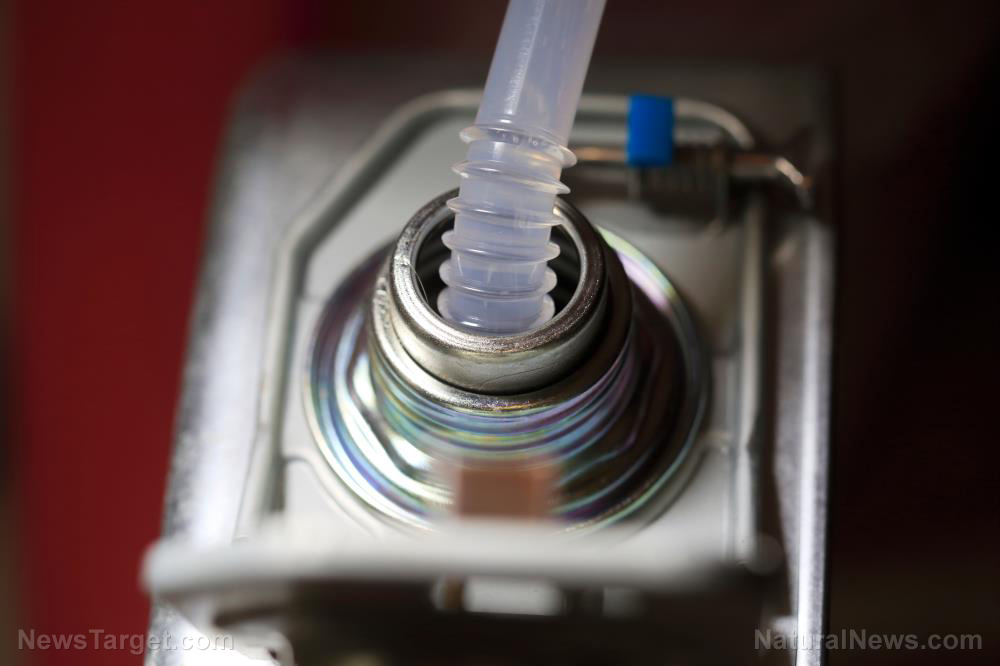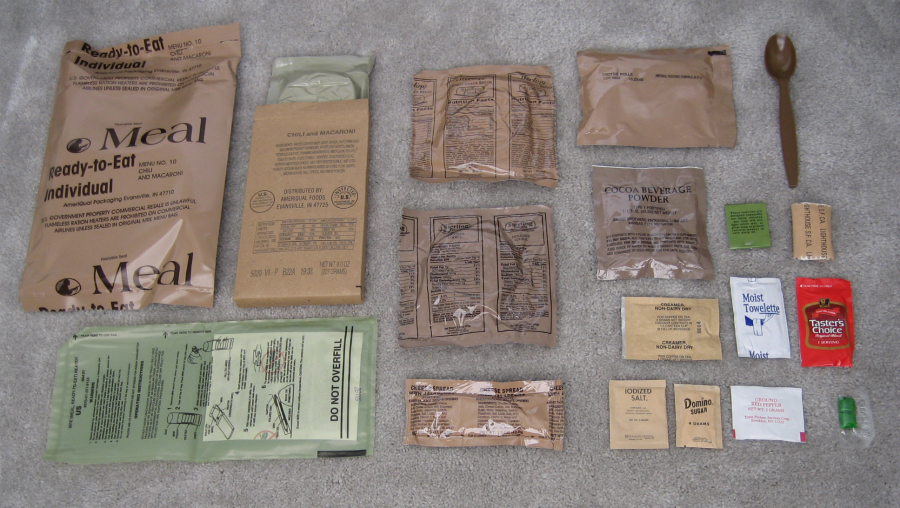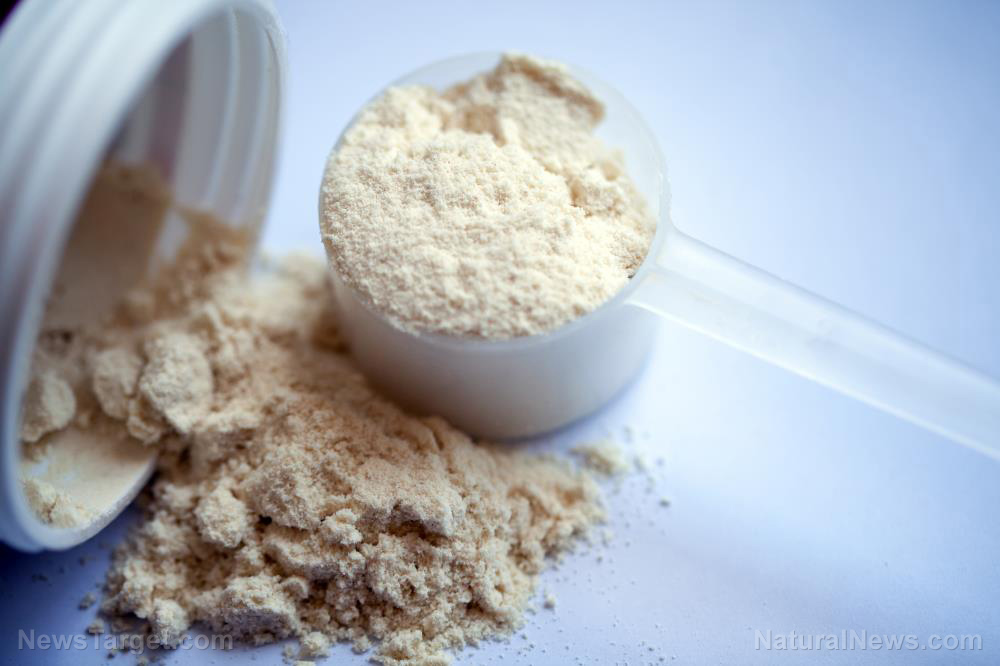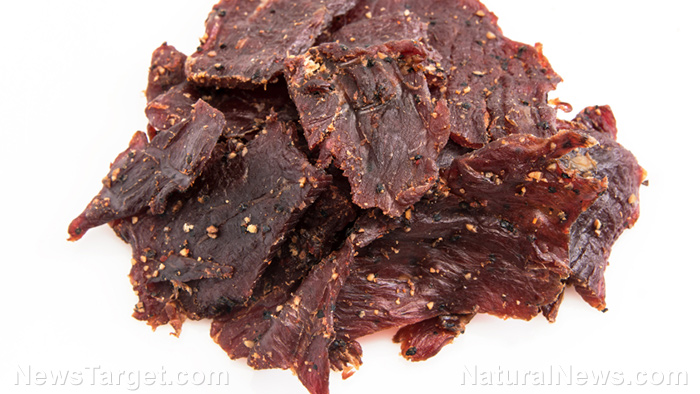How to make DIY non-toxic mosquito repellants with essential oils
05/14/2021 / By Virgilio Marin

With the mosquito season well underway, it can be tempting to buy mosquito repellants to protect yourself from mosquito bites. But these commercial products contain toxic chemicals that can do more harm than good to your health and the environment.
To ward off mosquitoes without getting exposed to chemicals, try one of the following recipes to make your own mosquito repellant. Each of these recipes include essential oils that are commonly used in aromatherapy. On top making your home smell fragrant, these oils also keep mosquitoes away. (h/t to TheHomesteadingHippy.com)
How to make your own mosquito repellants with essential oils
These DIY mosquito repellants take the form of topical blends or sprays.
Lemon eucalyptus oil blend
Lemon eucalyptus oil contains trace amounts of citronellal and p-Menthane-3,8-diol, both of which are very good at repelling mosquitoes.
Ingredients:
- 10 milliliters (mL) lemon eucalyptus oil, or 2 teaspoons
- 90 mL carrier oil, such as jojoba oil or sweet almond oil
- A 100 mL lidded jar or bottle
Pour both oils into the jar and put the lid on. Shake gently or use a spoon to mix the oils. For extra pleasant smell, you can add a few drops of fresh lemon, orange or lime juice. Apply the mixture to any exposed part of your body.
Citronella oil spray
Citronella oil is obtained from the leaves and stem of different lemongrass species. Along with lemon eucalyptus oil, citronella is one of the most effective natural insect repellants. It contains geraniol, citral, citronellal and limonene, all of which fend off mosquitoes.
Ingredients:
- 10 drops citronella oil
- 10 mL alcohol or vodka
- 90 mL water
- Spray bottle
Mix the alcohol and water in the spray bottle and then add the citronella oil. Mix thoroughly and squeeze citrus fruits if you like. Spray onto exposed skin two or thrice a day.
Lavender and vanilla spray
Known for its relaxing properties, lavender oil is also a terrific mosquito repellant, thanks to its many anti-mosquito compounds. It contains eucalyptol, linalool, limonene and camphor, all of which keep bugs away. Similarly, vanilla also repels mosquitoes and has a pleasant smell to boot.
Ingredients:
- 12 drops lavender oil or fresh lavender flowers
- 4 tablespoons vanilla extract
- 4 tablespoons lemon juice
- 500 mL water
- Spray bottle
Mix the lavender oil, vanilla and lemon juice in a bowl and then add the water. Transfer the mixture into the spray bottle and shake the mixture well before each use. Spray the mixture on all exposed areas of the skin. (Related: 7 Proven uses of lavender essential oil.)
Neem and coconut oil spray
Neem oil has a very potent odor that makes mosquitoes go away and becomes even more potent when combined with coconut oil. And on top of driving away insects, studies show that neem oil also kills mosquito eggs.
Ingredients:
- 10 drops neem oil
- 30 mL coconut oil
- 50 mL vodka
- 250 mL hot water
- Spray bottle
Mix both oils in a bowl and then add the vodka. Mix well and then pour the hot water into the mixture. Make sure that you use boiling water to properly mix the oil and alcohol. Allow the mixture to cool off before transferring the mixture into the spray bottle. Shake the bottle before every use and spray onto exposed skin. Reapply as often as needed.
Cinnamon oil spray
Cinnamon products can be used in various ways to repel mosquitoes. For example, cinnamon sticks that are boiled in hot water can be transferred into ornamental bowls to be placed on the table. The following recipe, however, takes a simpler approach:
Ingredients:
- 2 teaspoons cinnamon oil or extract
- 60 mL water
- Spray bottle
Combine the cinnamon extract and water in the bottle and shake thoroughly. Spray the mixture onto your skin as often as needed.
Essential oils like lemon eucalyptus and neem oil ward off mosquitoes without causing harm to your health and the environment. Make your own mosquito repellants by following one of the recipes listed here to protect yourself and your family from pesky insects this mosquito season.
Learn more about how to fend off mosquitoes and other pests by reading articles at Remedies.news.
Sources include:
Tagged Under: aromatherapy, cinnamon oil, citronella oil, coconut oil, DIY, environment, essential oils, green living, Herbs, homesteading, how-to, insects, lavender oil, lemon eucalyptus oil, mosquito bites, mosquito repellant, mosquito season, mosquitoes, natural ingredients, natural remedies, neem oil, recipes, remedies, self sufficiency, sustainable living, vanilla
RECENT NEWS & ARTICLES
Homesteading.News is a fact-based public education website published by Homesteading News Features, LLC.
All content copyright © 2018 by Homesteading News Features, LLC.
Contact Us with Tips or Corrections
All trademarks, registered trademarks and servicemarks mentioned on this site are the property of their respective owners.





















